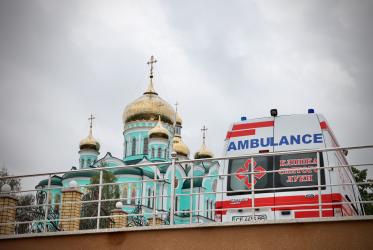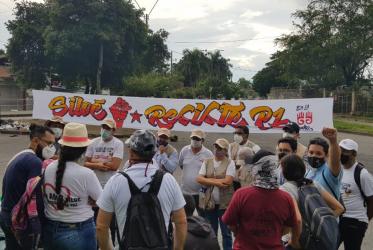Displaying 1 - 20 of 28
Ukraine: Responding to humanitarian need
08 September 2022
Monastery in Ukraine responds to the consequences of war
09 August 2022
WCC leaders recall life-changing experiences from early days
10 February 2022


















